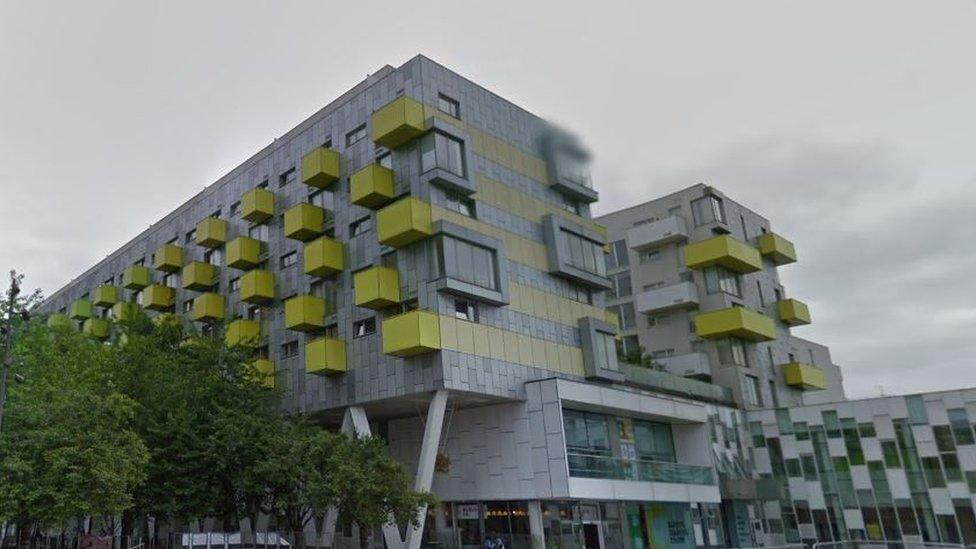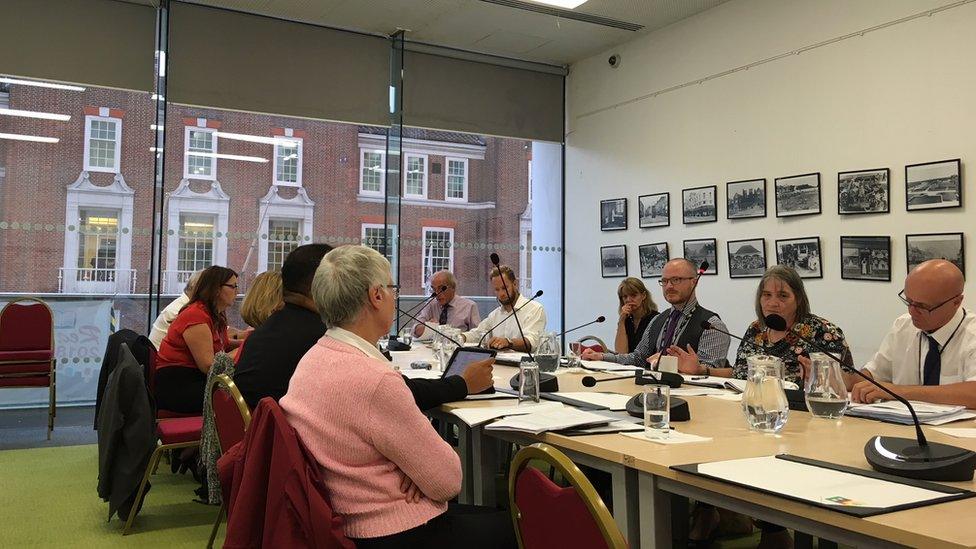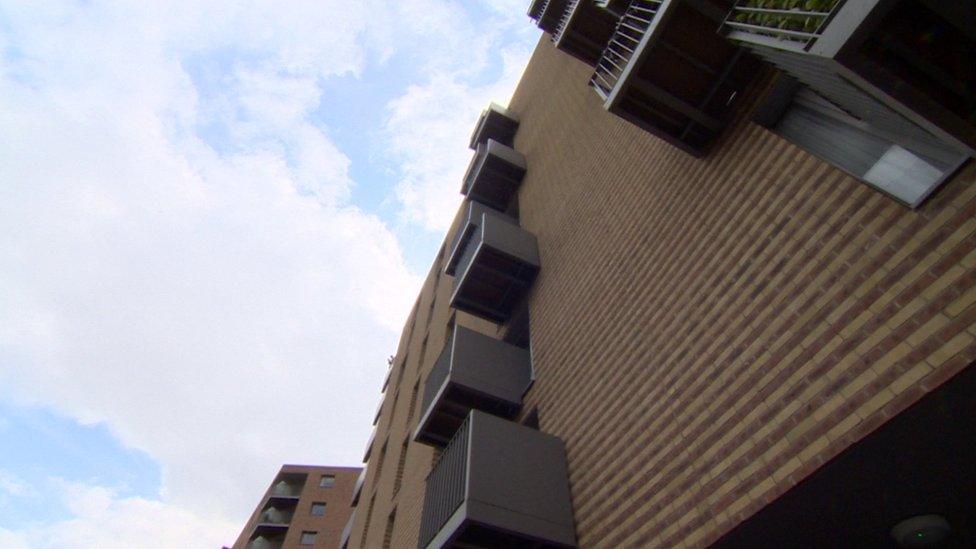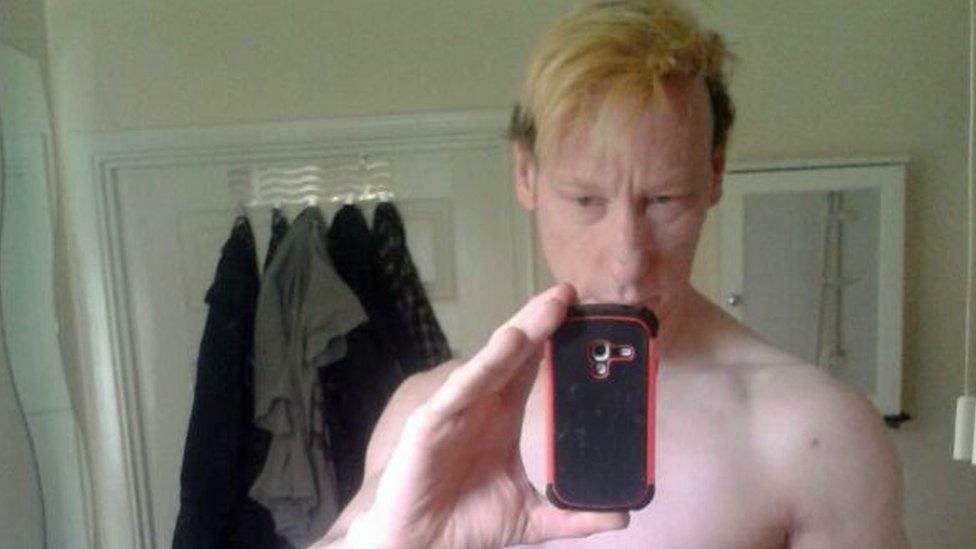Council returns vulnerable woman to suspected traffickers, report finds
- Published

Barking and Dagenham council returned her to Romania with her stepfather despite him having been apparently involved in her trafficking
A vulnerable woman who was found starving, beaten and forced to work as a slave was returned to her suspected traffickers, a report has found.
"Drina", who has learning disabilities, was discovered by chance when bailiffs raided a house in east London.
Barking and Dagenham council later returned her to Romania with her stepfather, despite him having been apparently involved in her trafficking.
The council said it wanted to "ensure such practice does not arise" again.
The women was sent back to Romania in 2016.
Social workers in Romania said she and her stepfather had since gone missing, the Local Democracy Reporting Service reports.
'Scarring on legs'
A council-commissioned report, external into the case stated Drina had probably been forced back into slavery, and criticised "significant failures" by the council.
It concluded that "services failed to ensure her protection".
It also said police failed to treat the stepfather as a suspect, despite his apparent involvement in moving her to another address after she was first found, and her indicating that he hit her while he was drunk.
"Scarring, suggesting burns" was found on her legs and thighs, but police and council staff "appeared not to have acted on this evidence of possible physical abuse", the report found.
'Bundled into van'
The woman, who is in her 30s, was spotted by bailiffs in November 2016 sheltering under a mattress in the garden of an east London property.
The bailiffs called police, but the woman was bundled into a van at knifepoint before officers arrived, according to the report.
Drina was found again and the following month she was returned to Romania.
Barking and Dagenham council arranged for her to be accompanied by her stepfather.
The report was commissioned by the councils's Safeguarding Adults Board (SAB) after a "shocked" health worker turned whistleblower.
At a meeting of the council's health and wellbeing board, external, Brian Parrott, chairman of the SAB, said an "action plan" had been put in place.

The council's health and wellbeing board discussed Drina's case on 6 September
The council said it was committed "to raising the profile of issues relating to modern slavery, and to ensuring systems and staff training [are] in place to ensure such practice does not arise in future".
A Metropolitan Police spokeswoman said officers had received extra training to identify slavery cases.
The Home Office estimates there could be up to 13,000 victims of slavery in Britain.
However, charities say this figure could be far higher.
- Published29 August 2018

- Published24 November 2016
